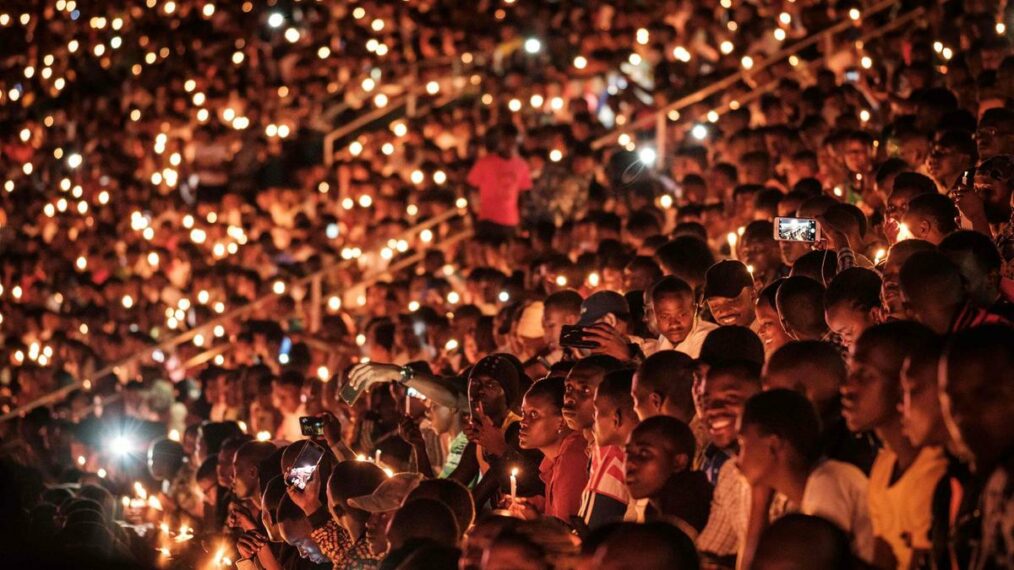
What Can Afghanistan Learn from Rwanda?
When the war in Afghanistan finally ends, an estimated 50,000 to 60,000 Taliban fighters will have to be reintegrated into Afghan society. The current generation of Taliban fighters has known little besides war for the majority of their lives. For many, their opposition to the Afghan government and life as an insurgent has formed a key element of their identity. While this might at first cause anxiety about the possibility of reintegrating these fighters into civilian life, the example of reintegration in Rwanda provides a reason for optimism.
Context
The Rwandan genocide was one of the bloodiest events of the twentieth century. Beginning in April of 1994, Hutu militias, indoctrinated into a genocidal ideology by demagogic politicians and “hate radio,” murdered their fellow Tutsi citizens without mercy. Within a mere hundred days, 800,000 people were murdered.
Over 300,000 Rwandans have spent time in prison for their crimes during the genocide. While Rwanda Correctional Services’ main responsibility was overseeing these incarcerated Rwandans, they also provided services useful to the reintegration process. Prisoners were advised to be honest with their loved ones about the crimes they committed, to be understanding if their partner had entered a new relationship, and to work to embrace their identity as a citizen of Rwanda. Some prisoners were provided preparation for employment while incarcerated.
Other participants in the genocide who admitted their guilt and expressed remorse for their crimes chose to participate in TIG (a French acronym for “works of general service”). In exchange for staying out of prison, these citizens have agreed to complete unpaid work to repay their debt to society. TIG participants have been involved in building roads, constructing houses, agriculture, mining, and manufacturing.
Many former genocidaires have only recently been released from prison and allowed to return to their communities. Many have received a warm welcome. They are greeted by neighbors who are eager to reconnect and given small gifts like soda pop and beer. Some former genocidaires even manage to have meaningful relationships with the families of their victims.
Rwandan society has chosen to move forward. Recently released Rwandans often comment on the nation’s economic development since their incarceration. Government investment has provided livestock to farmers and helped boost Rwanda’s growth rate to an average of 8% over the last two decades. It is now the second-best place to do business in all of Africa. While powerful commemorations are held every April 7 to remember the genocide’s victims, daily life in Rwanda is now concerned with more simple economic issues: home construction, the agricultural season, and employment.
While reintegration in Rwanda may at first appear to be a niche issue, it makes apparent the possibility of reintegration and forgiveness after even the most extreme instances of violence. Rwanda’s example can provide lessons that are applicable to the case of Afghanistan.
Lessons
Reintegration is a difficult and painful process but it is far less costly than continued fighting. The Afghan government and the foreign powers financing both sides of the war will have to make a serious investment in the reintegration process. This process must be pragmatic and not just symbolic. While truth and reconciliation processes can be psychologically beneficial for ex-combatants, they will not deter another outbreak of violence. Given the influence of money in driving the Afghan war and Afghanistan’s general culture of impunity, it must be in the self interest of Afghanistan’s ex-combatants to accept peace.
Like Rwanda, Afghanistan must successfully foster a spirit of citizenship among participants on all sides of the conflict. While Afghanistan’s long history of decentralized governance makes this difficult, it is a necessity if there is to be a long-lasting peace. A commitment to reconstruction, economic development, and small business projects would be a significant start.
However, these projects must steer clear of the corruption and connections to poppy cultivation and trafficking that plagued previous development initiatives. Pursuing simple programs consisting of only small transfers of cash —like the Rwandan government’s “one cow” program— could help avoid these problems. These programs must not discriminate against ex-combatants. The Taliban must have a stake in Afghanistan’s future if they are to be reintegrated into society.
When a peace agreement is signed between the government of Afghanistan and the Taliban, the Taliban will be free men. Compelling them to take part in the sort of reintegration programs and commemorations that Rwandans do will be near impossible. Instead, they must voluntarily rejoin their communities. Through the construction of economic, social, and religious interdependence, Taliban fighters could find peace to be in their self interest. While reintegration will prove a difficult task, it will certainly be far less difficult —and less costly— than another outbreak of war in Afghanistan.
— Connor Bulgrin
